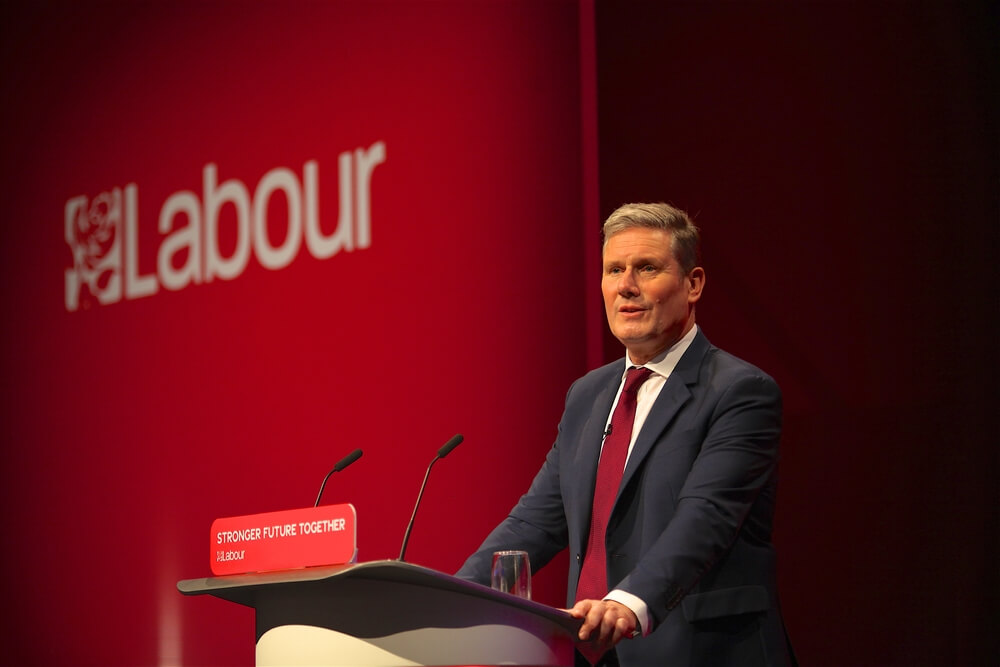The Labour Party is a political unit founded in 1990 in Britain that is comprised of an alliance between three political groups of social democrats, democratic socialists, and trade unionists. The Labour Party is the official opposition with the second-largest number of seats in the House of Commons. This party originated out of the need to represent the needs and demands of the urban working class, a demographic that was increasing in size.
Early life and career of Sir Kier Starmer:
Sir Keir Starmer, born on September 2, 1962, was the second child of the four siblings in the family. Growing up in Oxted, a small town in Surrey, this family of six was sustained by Starmer’s parents. Starmer’s mother worked as a nurse in the NHS, and his father, Rodney Starmer, worked as a toolmaker in a factory. The Starmers were avid supporters of the Labour Party, and this devotion also inspired them to name their child after the first parliamentary leader of the Labour Party, Keir Hardie.
Starmer completed his schooling at Reigate Grammar School in Surrey. In his schooling years, he was peers with Andrew Sullivan, fondly recalling all the times they squabbled over religion and politics, amongst other topics. Sullivan largely made his name by being a controversial conservationist, and in his teenage years his allegiance with Thatcherism was primarily why he logged heads with Young Sir Keir Starmer. Starmer joined the Labour Party in his early teens, thus inheriting his parents’ views, and was very aligned with leftist politics.
Starmer was committed to his studies while also developing his political prowess. He was the first member of his family to graduate from the University of Leeds. At Leeds, he earned a Bachelor of Law (LLB) with first class honours in 1985. Subsequently, Starmer pursued his post-graduation at St. Edmund Hall, Oxford, receiving his degree from the University of Oxford as a Bachelor of Civil Law (BCL).
Legal career
The current leader of the Labour Party started his legal career as a barrister in the Middle Temple in 1987. His notable achievements as a barrister include his assistance in the 1997 Helen Steele and David Morris case. This case is also called the McLibel case: McDonald’s Corporation vs. Steele and Morris. The case was prominent because a multinational corporation was suing for libel against two environmentalists, Helen Steele and David Morris. Starmer acted as a human rights advisor to the Northern Ireland Policing Board, later stating that his work in Northern Ireland policy-making pushed him to pursue his political aspirations seriously. He got married to his wife, Victoria Alexander in 2007.
As a Director of Public Prosecutions, Starmer’s appointment was welcomed due to his past work in human rights. As Director of Public Prosecutions, he made prominent moves during the 2011 England riots, and in 2013, he was pivotal in changing the way investigations into sexual abuse cases were being handled. Starmer made many improvements during his tenure as the Director of Public Prosecution. His long and successful run as the Director of Public Prosecution ended in 2013, following which Alison Saunders replaced him.
Leading the Labour Party
Sir Keir Starmer succeeded Corbyn as leader of the Labour Party. With 56.2% of voters in favour of his candidature for leadership of the Labour Party, he became the Leader of the opposition. Starmer was criticised for abandoning the socialist policies that he put forth as the Labour Party’s agenda during his candidature run for leadership. His sudden withdrawal from these proposed values was due to the fact that the current socioeconomic situation did not allow for the smooth implementation of the agenda previously proposed. In 2023, under Starmer’s leadership, the Labour Party proposed a lot of missions related to economic growth, clean energy, NHS reform, policing, and education. This new proposal of missions did not give proper metrics or targets in any measure whatsoever. Starmer explained his political positioning from his teenage years to his rise as an eminent politician in the socialist magazines- Socialist Alternatives and Socialist Lawyer. Starmer himself bore the title ‘Socialist’ very proudly and cites that his socialist stance arises from his desire to tackle inequality and social injustice. He deviates from this claim as the leader of the opposition party.
Achievements and Accolades
Sir Keir Starmer also has several honorary degrees to his name. Apart from this, he has also been a huge part of publications and lends his expertise to several books pertaining to human rights and laws. Some of the books that he has published are titled- ‘The Three Pillars of Liberty: Political Rights and Freedoms in the United Kingdom” (1996), with Francesca Klug and Stuart Weir’; “Criminal Justice, Police Powers, and Human Rights (2001)”, with Anthony Jennings, Tim Owen, Michelle Strange, and Quincy Whitaker; Lain Bryne and Sir Starmer published the “Blackstone’s Human Rights Digest” in 2001.
Apart from this, the prominent leader was also appointed as the Queen’s Counsel in 2002. He was ordained as the Knight Commander of the Order of the Bath (KCB) in 2014 for his service to law and criminal justice. He won the Bar Council Sydney Elland Goldsmith Award for his invaluable contribution in challenging the death penalty charges in the Caribbean, Kenya, Malawi, and Uganda.



